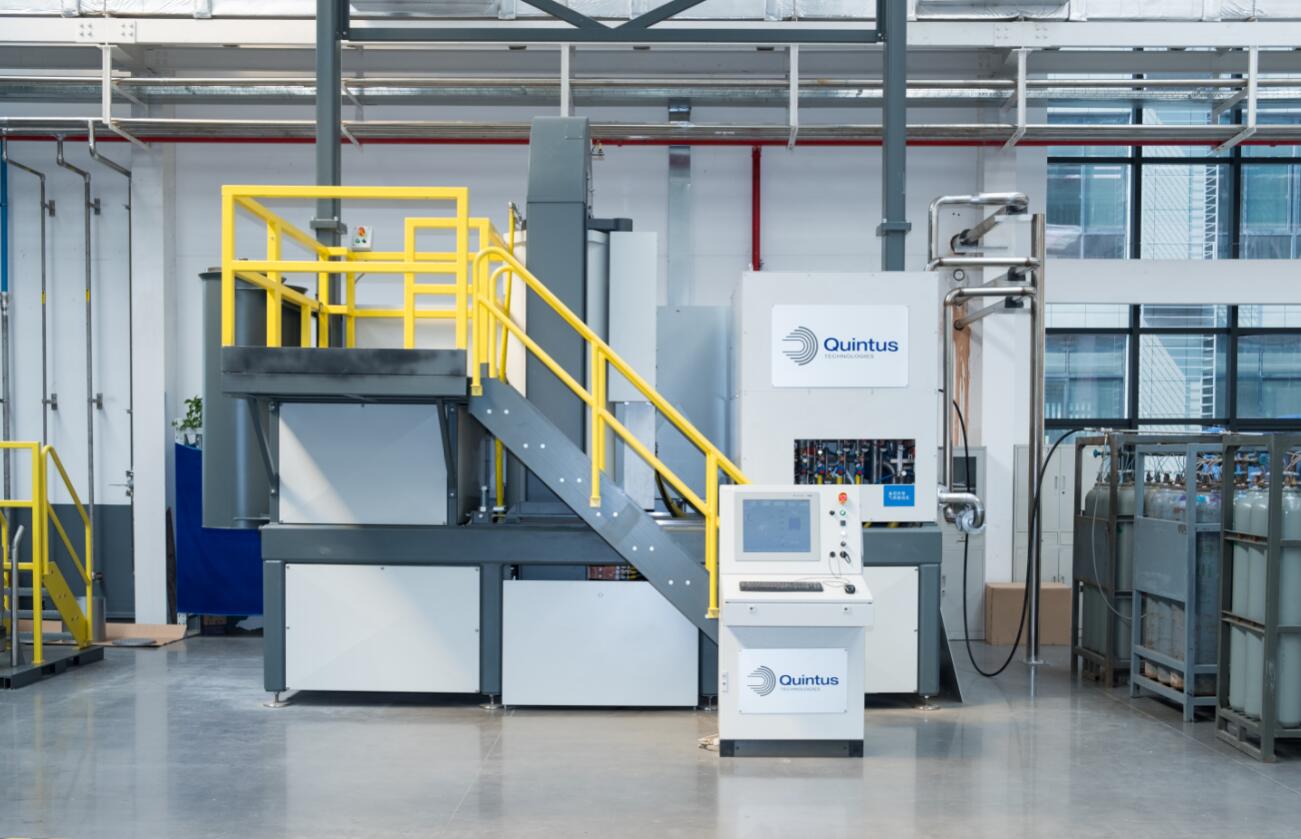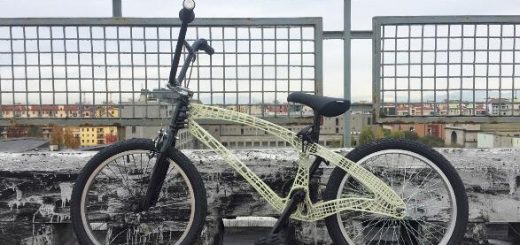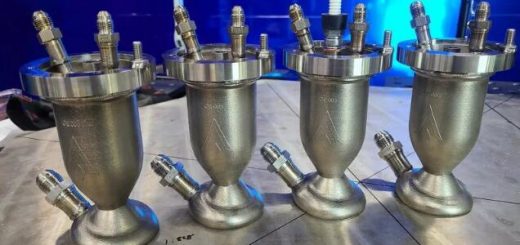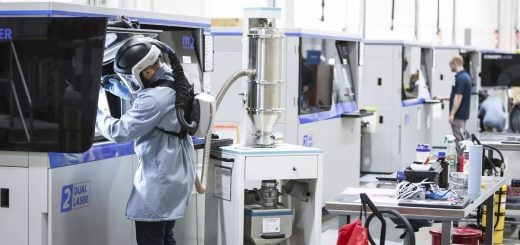Quintus Hot Isostatic Press Added To Production Portfolio At Xi’an Bright Laser Technologies
Xi’an Bright Laser Technologies Co., Ltd. (BLT) has installed a hot isostatic press (HIP) from Quintus Technologies to complement the sophisticated additive manufacturing capabilities offered by its new, state-of-the-art facility in Xi’an, Shaanxi Province, in northwestern China.
The press, model QIH48 URC®, is equipped with Quintus’ patented Uniform Rapid Cooling, a unique feature that combines traditional hot isostatic pressing with heat treatment in a single system. The integrated materials densification process, known as High Pressure Heat Treatment, produces parts with improved fatigue and ductile properties to satisfy critical performance requirements in industries ranging from aerospace and automotive to medical and energy.

Image Via:BLT
BLT is an innovative leader in the field of 3D printing, with close to 100 advanced devices for laser additive manufacturing and repair operating in its 430,000-square-foot (40,000-square-meter) Xi’an facility. The equipment is capable of printing more than 50 grades of materials, including titanium and aIuminum alloys, superalloys, and stainless, die, and high-strength steels.
“We chose to work with Quintus Technologies because the company has more than 50 years of history in the application of high pressure in sheet metal forming and advanced material densification,” says Dr. Xue Lei, General Manager, BLT.
Suitable for cost-effective production and advanced AM process development, the Quintus HIP system at BLT features a hot work zone of 14.8 inches (375 mm) in diameter and 47.2 inches (1200 mm) in height; an operating temperature of 2552°F (1400°C); and pressure of 30,000 psi (2070 bar).
Dr. Xue Lei continues, “The QIH 48 URC® offers several time-saving and quality advantages. The streamlined High Pressure Heat Treatment process enables us to serve our customers with shorter lead times. The press’ programmable temperature distribution and high precision can avoid thermal stress deformation caused by temperature change and prevent cracking. In addition, there is no need to clean or dry parts after cooling.”
“We are very pleased to be working with a company that has such expertise in additive manufacturing in China,” says Jan Söderström, CEO of Quintus Technologies. “Our collaboration brings together two leaders that are committed to advancing technology development and product innovation in the AM field.”
Source:CISION




Recent Comments